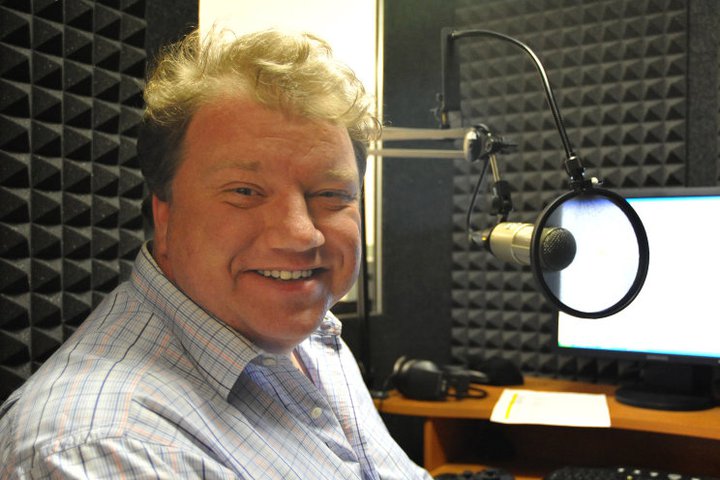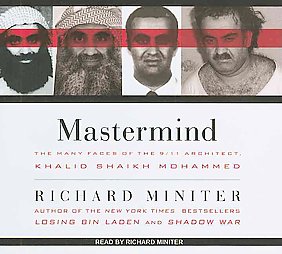
Richard Miniter is a Washington, D.C. writer whose work has appeared in numerous publications. He is the author of THE MYTH OF MARKET SHARE and several books on the war on terrorism, including SHADOW WAR and DISFORMATION. Richard is a national security columnist for Forbes.com Here, he talks about the experience of recording his book, MASTERMIND: The Many Faces of the 9/11 Architect, Khalid Shaikh Mohammed.
In the mind of a writer, the eye and the ear are always at war.
It is a friendly war, like the spat between a loving wife and her husband or a film director and his star.
Writing a book is like reading a book --- the old-fashioned way. Your eye scans the words and you hear the words in your mind. They don't sound like the words in your ear, like a conversation with a friend or an audio book heard in the quiet of your car. Instead, the words sound almost like dreams. As a writer, you hear punctuation --- the half-beat of a comma, the breath of a long double-dash. And, since you're writing the words, you know the tone and emotional color. And you develop some small but strong emotional attachment to the hard-won word or the perfect phrase, the kind of thing it took you a while to find, dig out and hammer straight. Its like the back fence that you painted yourself, to you and maybe only you, it looks better than the neighbor's white slats. And, look, he missed one.
So, when I walked into Tantor to read MASTERMIND, I was in for a surprise. In the small black booth --- they call it a "whisper room" --- I read my book aloud. Aloud. That is how stories were first told. When Homer told the story of Achilles and Odysseus, the blind poet spoke and sang. For thousands of years, stories came through the ear.
Then, with Gutenberg and popular printing, stories starting coming in through the eye. Writers changed. Shakespeare is probably the last writer to write for the ear. Listen to Thomas Hardy or Charles Dickens or even Earnest Hemingway and you will see what I mean. Yes, they are captivating stories to hear and wonderful words carefully forged. Listen to the Tantor editions and you will be glad that you did. But, to a writer, they are works clearly written for the eye.
And, here I was, in the booth at Tantor, reading my own words aloud for the first time. And, I realized, that I, too, had written for the eye.
Of course, we writers have tricks. A lot of the action sequences in MASTERMIND --- the bomb attacks in Africa, the terror of September 11 --- I dictated aloud to get a pacing that matched the action. For the thoughtful and brooding sections, when Khalid Shaikh Mohammed is planning to kill the Pope or an American president, I wrote it out by hand and slowly typed it in. Again, I was trying to match the pacing with the production of the words.
But, at Tantor, I realized in that dark booth, I should have written the whole manuscript by speaking aloud. It is how stories have been told for millenia. I now feel that the audio version of MASTERMIND is a whole new book.
It is a book for the ear.
In the long war between the ear and the eye, Tantor is taking us back to beginning. No, you don't need to make a campfire in your car or cubicle. But you have a chance, by listening, to hear stories as they were meant to be told.


